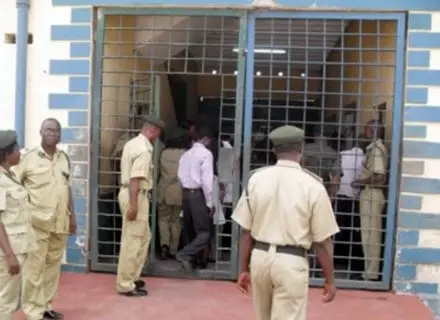Breaking News
Over 28,000 Inmates Freed in 2024 After Fine, Compensation Payments – NCoS
Lekatile also revealed an ongoing proposed amendment to the Nigerian Correctional Service Act, 2015, which includes plans to establish a Victim Compensation Trust Fund, to be financed through federal allocations.

The Nigerian Correctional Service (NCoS) has disclosed that a total of 28,149 inmates were released across the country in 2024 following the payment of fines and compensations.
This was revealed by Deputy Controller-General of Corrections, Ibrahim Idris, during the third public hearing of the Independent Investigative Panel on Alleged Corruption, Abuse of Power, Torture, and Other Inhumane Treatment against the NCoS, held on Thursday in Abuja.
“Last year, 28,149 inmates were released as a result of payment of fines and compensations. I also want to urge the panel and the public that payment of fine and compensation is a very charitable thing to do,” Idris stated.
He commended such interventions, noting their importance in decongesting custodial centres and aiding the government’s rehabilitation efforts.
“It helps the Federal Government a lot. But when an individual wants to do it, he should follow the example of the minister—where inmates were chosen, fines and compensation were paid, and even repatriation money was provided,” he added.
Idris emphasized that reduced inmate populations enable better rehabilitation, stressing that the philosophy of the correctional system is not to punish but to rehabilitate.
“Even before the 2019 Act, the philosophy of Nigerian correctional services has always been imprisonment as a punishment—not for punishment. Once a sentence is pronounced, it’s already punishment, whether the person enters a correctional centre or not,” he said.
Also speaking at the hearing, Assistant Controller General Cyrus Lekatile, who represented the Deputy Controller General of Corrections (Operations), clarified the legal boundaries of custodial operations.
“Practically, the NCoS does not have the power to keep in custody any individual who doesn’t have a valid document for remand. If someone is sentenced with an option of fine or compensation and can’t pay, they will serve the sentence,” Lekatile explained.
He detailed what happens when an inmate completes a sentence but still owes compensation.
“Sometimes, the warrants will include compensation. If unpaid by the end of the jail term, the compensation may be converted to additional jail time. If no such order exists on the warrant, the matter is referred back to the convicting court,” he said.
Lekatile also revealed an ongoing proposed amendment to the Nigerian Correctional Service Act, 2015, which includes plans to establish a Victim Compensation Trust Fund, to be financed through federal allocations.
“The amendment, if passed, will create a trust fund to compensate victims—separate from inmates who are unable to pay. This removes the burden of compensation from indigent convicts,” he stated.
However, he added that inmates would still contribute.
“Inmates will perform tasks to generate income, no matter how small, and the money will go into the victim’s trust fund,” he noted.









